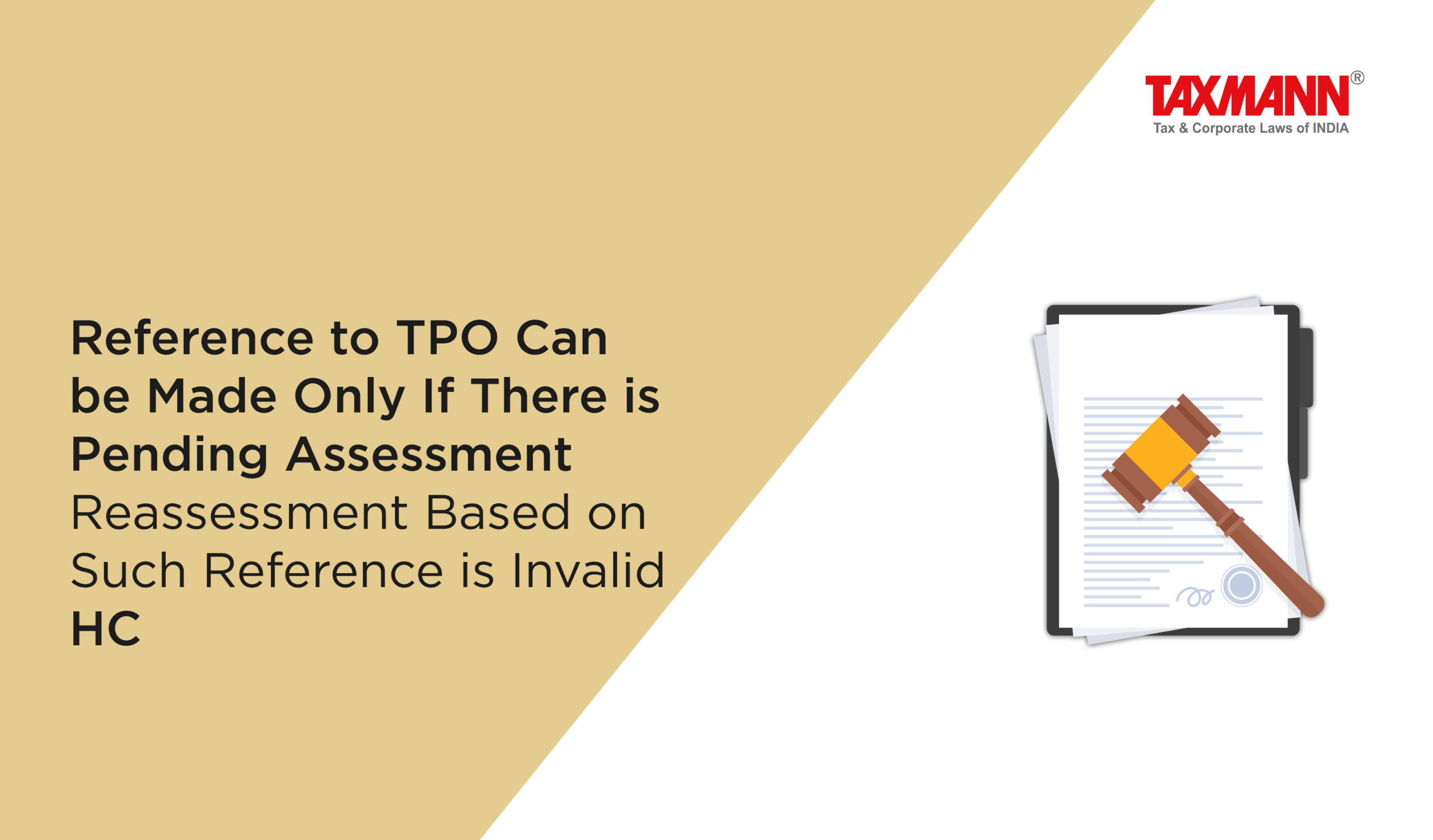Reference to TPO Can be Made Only If There is Pending Assessment | Reassessment Based on Such Reference is Invalid | HC
- Blog|News|Transfer Pricing|
- 2 Min Read
- By Taxmann
- |
- Last Updated on 19 September, 2023

Case Details: PCIT vs. Kimberly Clark Lever (P.) Ltd. - [2023] 154 taxmann.com 134 (Bombay)
Judiciary and Counsel Details
-
- K.R. Shriram & M.M. Sathaye, JJ.
- Suresh Kumar for the Appellant.
- P.J. Pardiwalla, Sr. Adv. & Hitesh Chande for the Respondent.
Facts of the Case
The assessee was engaged in manufacturing diapers and sanitary napkins and markets the consumer tissue products. Assessee filed a return of income for the relevant assessment year, which was processed under section 143(1).
Subsequently, the Assessing Officer (AO) referred to the Transfer Pricing Officer (TPO) under section 92CA, wherein the TPO passed an order under section 92CA(3) making an adjustment on account of the arm’s length price of the international transaction. After recording reasons for reopening the assessment, AO issued a notice under section 148. The assessee objected to the reopening of the assessment.
The matter reached before the Bombay High Court.
High Court Held
The High Court held that Section 92CA provides that where AO considered it necessary or expedient to do so, he may refer the computation of arm’s length price (ALP) in relation to an international transaction to the TPO. In such a situation, the TPO, after considering the material before him, passes an order in writing under section 92CA(3) determining ALP. Upon receipt of this order, the AO is required to compute the assessee’s total income in conformity with the arm’s length price determined by the TPO.
The occasion which requires the AO to compute income from an international transaction arises only during the assessment proceedings, wherein he determines the assessee’s total income. The Central Board of Direct Taxes (CBDT) in Instruction No. 3, dated 20-5-2003, has also stated in a situation where case will be selected for scrutiny before referring to the TPO, the Assessing Officer may proceed to examine other aspects of the case during the pendency of assessment proceedings but await the report of the TPO on the value of international transaction before making final assessment.
It is, therefore, quite clear that the process of determination of arm’s length price is to be carried out during assessment proceedings, may it be, under sub-section (3) of section 92C where the Assessing Officer determines the arm’s length price or under sub-section (1) to (3) of section 92CA, where the AO refers the determination of ALP to the TPO.
In the instant case, the reference was made without any pending assessment proceedings, the reference was invalid, and any order passed by TPO was null and void ab initio. Hence, such an invalid order of TPO could not be a reason for reopening the assessment.
Disclaimer: The content/information published on the website is only for general information of the user and shall not be construed as legal advice. While the Taxmann has exercised reasonable efforts to ensure the veracity of information/content published, Taxmann shall be under no liability in any manner whatsoever for incorrect information, if any.

Taxmann Publications has a dedicated in-house Research & Editorial Team. This team consists of a team of Chartered Accountants, Company Secretaries, and Lawyers. This team works under the guidance and supervision of editor-in-chief Mr Rakesh Bhargava.
The Research and Editorial Team is responsible for developing reliable and accurate content for the readers. The team follows the six-sigma approach to achieve the benchmark of zero error in its publications and research platforms. The team ensures that the following publication guidelines are thoroughly followed while developing the content:
- The statutory material is obtained only from the authorized and reliable sources
- All the latest developments in the judicial and legislative fields are covered
- Prepare the analytical write-ups on current, controversial, and important issues to help the readers to understand the concept and its implications
- Every content published by Taxmann is complete, accurate and lucid
- All evidence-based statements are supported with proper reference to Section, Circular No., Notification No. or citations
- The golden rules of grammar, style and consistency are thoroughly followed
- Font and size that’s easy to read and remain consistent across all imprint and digital publications are applied



 CA | CS | CMA
CA | CS | CMA
